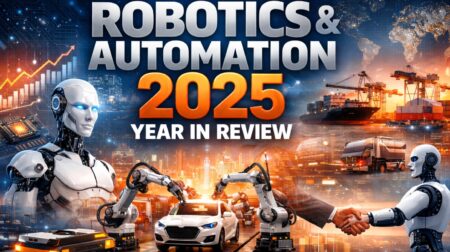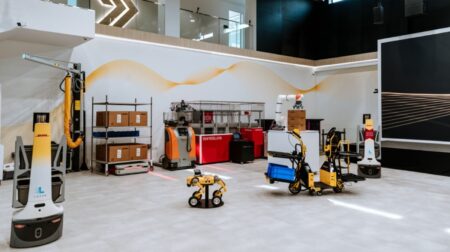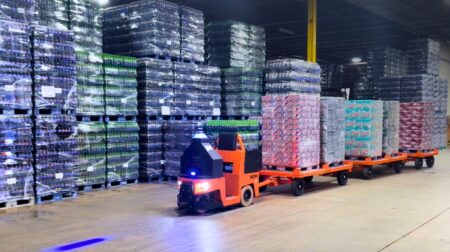DHL Supply Chain, the logistics branch of Deutsche Post DHL Group, has announced a US$15m (£12.18m) investment in robotics solutions from Boston Dynamics, a developer of mobile robotics, to improve its warehouse automation across North America.
The companies have signed a multi-year agreement that begins with equipping DHL facilities with Stretch, a Boston Dynamics robot designed to automate the unloading process in distribution centres.
The pair’s agreement marks the first commercial purchase of the Stretch robot, which was unveiled in 2021.
Deployment of the first Stretch units in DHL warehouses will reportedly begin this spring, with DHL planning to scale Boston Dynamics’ robots for additional applications across further sites over the next few years.
This investment aligns with DHL Supply Chain’s digitisation agenda, which covers the company’s strategy for developing and scaling innovative solutions and new technologies.
The robot will be assigned to several box-moving tasks in the warehouse, beginning with truck unloading at select sites.
“At DHL Supply Chain, we are committed to continuous innovation and digital transformation to optimise the end-to-end supply chain.
“Investing in warehouse automation plays an important role in increasing operational efficiency and improving service for our customers,” said Sally Miller, CIO, DHL Supply Chain North America.
“We’re excited to partner with Boston Dynamics to deploy its best-in-class robotics in our warehouses.
“The Stretch robot addresses complex industry challenges through flexible automation, which we’ll be able to replicate and scale regionally and globally.”
Stretch is equipped with a compact, omni-directional mobile base, custom-designed lightweight arm as well as a smart gripper with advanced sensing and controls that were developed to handle a large variety of box types and sizes.
What’s more, it also includes Boston Dynamics’ computer vision technology, which enables the device to identify boxes easily and without any pre-programming. The bot can also work autonomously through complex situations like disordered stacking configurations and recovering fallen boxes, according to Boston Dynamics.








